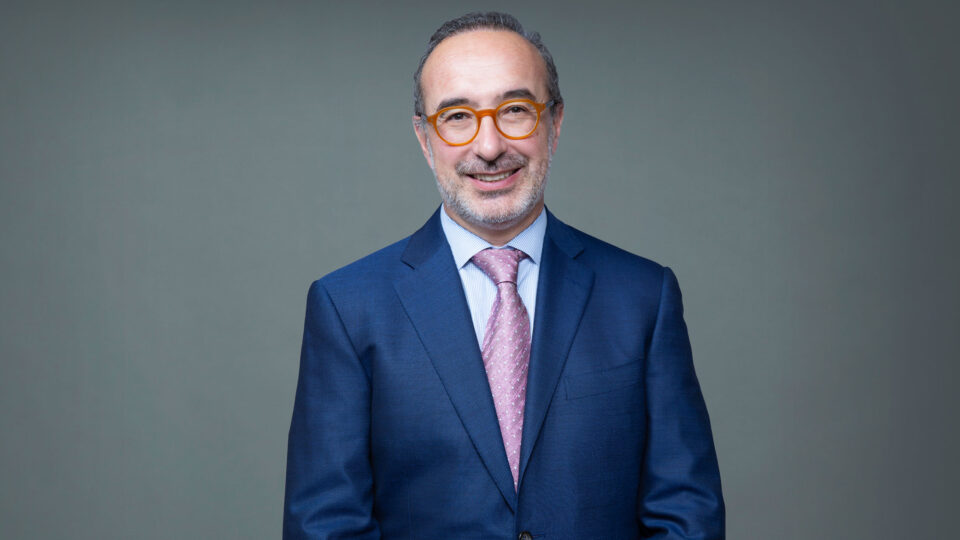In this era of bacillus Calmette-Guérin (BCG) shortage, the need for alternative treatments for non-muscle invasive bladder cancer (NMIBC) has never been more evident. Internationally renowned as an expert on novel therapeutics for NMIBC, Gary D. Steinberg, MD, director of the Goldstein Urology Bladder Cancer Program at Perlmutter Cancer Center, is leading several clinical trials aimed at testing innovative new treatment options for this complicated disease. Here, he discusses the explosion of new trials and concepts around NMIBC treatment, shares what is needed to propel research forward, and provides insight into the changing role of surgery.
Engaging the Immune System
Physician Focus: Of the many research activities that you are working on, which are you most excited about?
Dr. Steinberg: I’m currently very interested in newer forms of immunotherapy, whether it’s oncolytic vaccines, antibody-drug conjugates, or cytokine therapy. Like other highly mutated cancers, bladder cancer appears to respond better to the immune system, so I’m interested in looking at how we can best utilize the immune system to fight the disease.
One new treatment option that I’m particularly excited about is the CG0070 vaccine. It has a GM-CSF (granulocyte-monocyte colony-stimulating factor) gene in it to stimulate immune cell recruitment and it is designed to replicate in RB (retinoblastoma tumor suppressor protein)–mutated or -deficient tumor cells. Since roughly 80 percent of patients with high-grade bladder cancer have RB mutations or deficiencies, it could benefit a lot of patients.
We are now testing CG0070 in combination with pembrolizumab through the CORE-001 trial, for which I am the national principal investigator. This pairing may help combat the potential resistance mechanism of PD-L1 induction seen with immune cell death.
Intravesical Gene Therapy
Physician Focus: You are also serving as the national PI for the LEGEND trial, that is testing the safety and efficacy of a non-viral gene therapy designed to elicit a local immune response. Can you tell us more about this treatment approach?
Dr. Steinberg: For LEGEND, we are focusing on delivering genes for the cytokines RIG-1, an innate immune stimulator, and IL-12, a T-cell stimulator, directly to the uroepithelium. This way we stimulate both arms of the immune system.
But you can put anything you want into this delivery system. You can encode IL-15 or even a checkpoint inhibitor, like a PD-1 inhibitor. I think it provides a unique avenue for a variety of gene products and cytokines to draw different responses from the immune system.
Antibody-Drug Conjugates
Physician Focus: A phase 1 clinical trial recently opened to assess intravesical enfortumab vedotin for treatment of NMIBC, and you are helping lead this study as well. Tell us more about this antibody-drug conjugate.
Dr. Steinberg: Enfortumab vedotin delivers the tumor-killing drug monomethyl auristatin E directly to the tumor, taking out cancer cells without harming neighboring healthy cells. It’s incredibly active in metastatic bladder cancer and I believe that it is going to be our most effective antibody-drug conjugate in NMIBC. Perlmutter Cancer Center is the first site to start enrolling participants for this study.
The Impact of BCAN
Physician Focus: To drive advancements in bladder cancer treatment, you helped found the highly successful Bladder Cancer Advocacy Network (BCAN). Tell us more about the impact of this network.
Dr. Steinberg: Bladder cancer research was a desert up until 15 years ago when we created BCAN. The first meeting was simply a group of urologists all interested in moving the field forward. Over the past 15 years, we’ve created an organization for patients and helped make bladder cancer one of the hottest areas of research.
“Over the past 15 years, we’ve created an organization for patients and helped make bladder cancer one of the hottest areas of research.”
Gary D. Steinberg, MD
We’ve brought together urologists with pharmaceutical companies, medical oncologists, pathologists, scientists, and radiation oncologists. As a result of this dialogue, pharmaceutical companies are stepping up to the plate to help drive a lot of this innovation and new drug development.
The Importance of National Guidelines
Physician Focus: What do you think is needed in order to propel these emerging therapeutic strategies across the finish line?
Dr. Steinberg: As a urologic community, I think it’s critically important that we follow guidelines in the management of NMIBC. All too often, the management of NMIBC is all over the map, making it more difficult to interpret outcomes from various treatments and to enroll patients in clinical trials.
First and foremost, to help advance research, I really encourage urologists to follow national guidelines from the American Urology Association, the Society of Urologic Oncology and the National Comprehensive Cancer Network on the management of NMIBC.
Radical Cystectomy is Still a Cornerstone
Physician Focus: With so many promising new treatments on the horizon, can you speak to how the role of surgery in NMIBC may be evolving?
Dr. Steinberg: In the situation where we can preserve bladders because we have better treatments against high-risk NMIBC, we will hopefully be able to avoid recommending or utilizing radical cystectomy. It is clear that patients would like to preserve their bladder at all costs. Having said that, radical cystectomy is still the cornerstone of management for muscle invasive bladder cancer and high-risk NMIBC. All too often, patients will be treated for NMIBC and the disease will progress to muscle invasive disease. By the time that happens, patients frequently have locally advanced if not metastatic disease. There’s a fine line between properly preserving bladders, but not overdoing it.
Dr. Steinberg is a member of Clinical Trial Protocol Committees for the following companies: Merck, BMS, Janssen, CG Oncology, Pfizer, PhotoCure, Fidia, Seagen, Protara. He is or has been a scientific advisor/consultant within the past 5 years for the following companies: Heat Biologics; CG Oncology; PhotoCure; Merck; Roche/Genentech; Ciclomed; Taris Biomedical (Now Janssen); MDxHealth; Fidia Farmaceuticals; Urogen, Ferring; Aduro; Boston Scientific; Bristol Myers Squibb; Astra Zeneca; Pfizer, Janssen; Epivax Therapeutics; Natera; FKD; EnGene Bio; SesenBio; BioCanCell (Now Archiano); Nucleix; Ipsen; Combat Medical; Astellas; Fergene; Dendreon; Abbvie; Seattle Genetics; Verity Pharmaceuticals, Regeneron, STIMIT, Vyriad, Protara, xCures. He has equity stock/options in Epivax Therapeutics, and Urogen.
Read more from our experts in Urology






